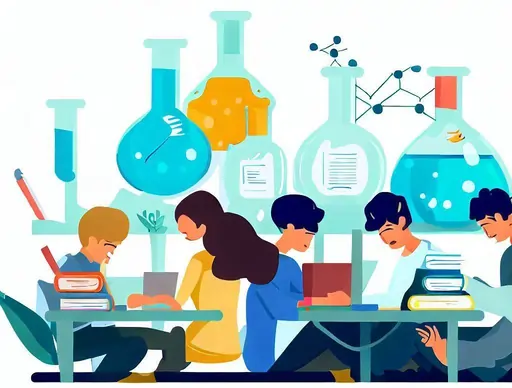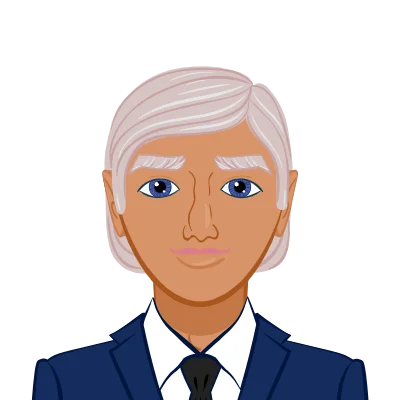Working on group projects is a standard practice in chemical engineering to address complex issues and promote collaborative learning. These tasks not only assess your technical knowledge but also help you improve teamwork and communication abilities, both of which are crucial for success in the workplace. This extensive manual aims to offer useful tips and methods for successfully cooperating on chemical engineering team projects.
Collaboration is essential to the success of these assignments because it enables team members to draw on their individual expertise and knowledge to come up with novel solutions. Working together allows people to gain new perspectives, deepen their understanding of the subject, and sharpen their problem-solving skills. However, effective planning, coordination, and team member communication are necessary for a collaboration to be successful.
This guide will cover a variety of topics related to group chemical engineering assignments, such as comprehending the assignment's requirements, defining roles and responsibilities, setting up efficient communication channels, handling conflicts, and utilizing the strengths of each team member. You can enhance your educational experience, encourage effective teamwork, and produce top-notch work on your chemical engineering assignments by paying attention to these suggestions.

Understanding the assignment
It is essential to fully comprehend the assignment's requirements before beginning the collaborative process. Pay close attention to the guidelines, goals, and deliverables that your professor or project manager has outlined. Making sure you and your team are on the same page from the outset depends on your understanding of the assignment's parameters and requirements.
To accomplish this, arrange a meeting with your team to go over the assignment. To prevent misunderstandings later on, the group should discuss any ambiguities or uncertainties. Dissect the assignment's main parts, then talk about the best way to approach each one.
Finding any additional resources or references that might be needed is also crucial during this phase. To help you understand the assignment, conduct research and gather the necessary data. You can plan and assign responsibilities within the team effectively if you have a clear understanding of the task at hand.
Creating a Successful Team:
Building a diverse and cohesive team is crucial for effective collaboration. When forming your group, there are a number of things to take into account.
First, make an effort to assemble a team with members who have a variety of skill sets. Chemical engineering includes a number of related fields, including reaction kinetics, thermodynamics, and process design. A more thorough approach to problem-solving is possible when there is a mixture of knowledge in various fields. Each team member can bring to the task their particular expertise and set of skills.
In order to ensure compatibility, it is also critical to evaluate the communication preferences of team members. Smooth collaboration requires effective communication. Look for people who are willing to receive constructive criticism, listen intently, and speak clearly. Communication style compatibility encourages effective information sharing and minimizes potential misunderstandings.
Moreover, think about the team members' dedication and availability. Choose people who are committed to finishing the task and can consistently donate their time and effort. It is crucial to have a team that is dependable, dedicated to meeting deadlines, and capable of producing excellent work.
Last but not least, make sure the team dynamics are favorable and encourage cooperation. Look for people who can contribute positively to discussions, work well in a team environment, and have excellent interpersonal skills. A supportive and effective work environment will be fostered by creating a team with positive dynamics.
You can put together a cohesive and efficient team that is well-suited to take on the challenges of the assignment by taking into account these factors when forming your team.
Roles and Responsibilities Establishment:
Establishing clear roles and responsibilities within the team is crucial to ensuring a well-organized and productive workflow. The assignment process can be made more efficient by giving each team member a specific task and responsibility based on their skills and interests.
Start by outlining each team member's advantages and areas of expertise. Determine who would be most qualified to complete any necessary research, writing, editing, presentation, or other tasks. Roles are assigned based on individual strengths, which maximizes team productivity and enables each team member to contribute their unique set of skills.
Take into account team members' preferences and interests as well. Assign tasks in accordance with any enthusiasm someone expresses for a particular component of the assignment. This not only inspires the team but also makes sure that the assignment is approached from a variety of angles.
Make sure that everyone on the team is aware of their respective roles and responsibilities. A team meeting or written documentation that outlines the duties and due dates for each team member can accomplish this. Make sure everyone is aware of their responsibilities and the standards that go along with them.
To make sure that everyone is on track, a system for frequent progress updates and check-ins must be put in place. Encourage open communication among team members so they can discuss their progress, ask for help if they need it, and deal with any issues that may come up.
Roles and responsibilities should be clearly defined to establish accountability and structure within the team and to facilitate easier collaboration and more effective workflow.
Successful Communication:
Successful collaboration is based on effective communication. It is essential for the project's success that your team establishes efficient communication channels and keeps in touch frequently.
To discuss progress, address issues, and reach a consensus, schedule regular team meetings. These meetings can be held in person or virtually using tools like video conferencing, depending on the team members' schedules and preferences. Depending on the deadline and difficulty of the assignment, the frequency of these meetings may change.
Use online collaboration tools in addition to meetings to facilitate real-time communication and streamline teamwork. Team members can stay in touch, share updates, and work together on various aspects of the assignment with the aid of project management tools, collaborative document editors, and communication apps.
Be as concise and clear as possible when speaking with other team members. Avoid using jargon or technical terms that some members may not be familiar with, and speak in plain English. To make sure that everyone is on the same page, express thoughts, directives, and criticism in clear terms.
Encourage the team to practice active listening. Give each team member a chance to share their thoughts, worries, and suggestions. Engage in fruitful debates while paying attention to others' viewpoints. A sense of inclusivity is fostered as well as creativity and innovation by valuing each team member's input.
Lastly, cultivate a climate of open and honest communication. Encourage team members to discuss their accomplishments, difficulties, and suggestions. Encourage a culture where criticism is welcomed and constructively used. Effective teamwork fosters trust among members and improves the overall collaboration process.
By placing a high priority on effective communication, you can make sure that information is shared within the team without difficulty, conflicts are kept to a minimum, and everyone is working toward the same objective.
Setting Up Deadlines and Goals:
For effective project management and accountability, it is crucial to establish precise deadlines and milestones. Organizing the assignment into smaller tasks and setting deadlines for each one makes it easier to monitor progress and guarantees that the project will be finished on time.
Analyze the assignment's requirements first, then list the main deadlines or deliverables. These benchmarks may include particular sections of the report, experiments to be carried out, or simulations to be finished. Divide these milestones into even more manageable tasks or subtasks.
Give each task a deadline and make sure the team is aware of it. Make sure that, taking into account the difficulty of the assignments and the resources at hand, these deadlines are reasonable and doable. Setting arbitrary deadlines can result in unneeded stress and decreased work quality.
Follow up on how each task is going on a regular basis to see if the team is on track to finish the project by the deadline. To keep track of due dates and milestones, use project management applications or collaborative calendars. This makes it possible for team members to understand their individual roles and the project's timeline.
If necessary, be prepared to change the timeline. There could be unforeseen challenges or delays with the project. You can spot and quickly address any problems by keeping an eye on the progress and maintaining open communication within the team. Maintaining a feasible and realistic project plan involves adjusting the timeline in response to difficulties.
The team will feel more organized and under pressure if you set clear deadlines and milestones. By doing this, you can increase accountability and make sure the project moves along methodically and on schedule.
Conclusion:
Chemical engineering group projects require teamwork, which is a skill that not only helps students succeed academically but also gets them ready for the difficulties they might encounter in the workplace. Understanding the assignment requirements, outlining roles and responsibilities, establishing effective communication, and utilizing each team member's strengths have all been emphasized throughout this guide.
Team members can evenly distribute the workload and guarantee a coordinated approach by carefully analyzing the task at hand and segmenting it into manageable pieces. A more effective workflow results from assigning specific roles based on individual strengths and expertise. Effective collaboration and ensuring that everyone on the team is on the same page are made possible by clear communication channels, both online and offline.
Group work requires managing conflicts, and the guide has provided tactics for dealing with disagreements in a positive way. Students can maximize their potential and develop creative solutions to challenging problems in chemical engineering by embracing diverse perspectives and encouraging a positive and inclusive team environment.
The importance of using each other's strengths and learning from one another has also been emphasized in this guide. Team members can improve their comprehension of the subject matter and cultivate critical thinking abilities by actively participating in group discussions, exchanging knowledge, and offering constructive criticism.
A combination of technical expertise, teamwork, and effective communication is required for working effectively on group chemical engineering assignments. Students can enhance their educational experience, encourage fruitful teamwork, and succeed in their chemical engineering assignments by putting the strategies described in this manual into practice. Their future careers as chemical engineers will undoubtedly benefit greatly from the skills they have developed through these group projects.
